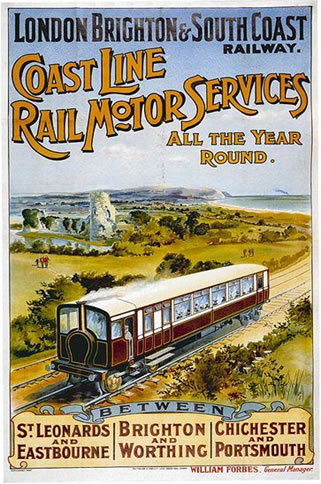
As we commemorate Remembrance Day, we turn our thoughts to the sacrifices made by our ancestors in the major wars and conflicts of the past. As the wars touched so many people’s lives, there are numerous stories of dedication, heroism, medals awarded and tragic loss of life. In this article we look at the brave sacrifice of The Great War and the loss of a talented generation.
The brave, dedicated railway clerk
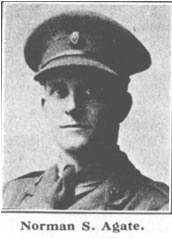
Norman Stanford Agate, born 1894, was a hard working young man from Emsworth in Hampshire, the son of Alfred and Anne Letitia Agate. He went to Churcher’s College, Petersfield and then onto London University. After graduating he took a job with the London, Brighton and South Coast Railway as a clerk based at London Victoria Station. With the continued popularity of rail travel in Britain, it was a secure mode of employment.
Answering the call to arms
Caught up in patriotic fervour, Norman left his job as a clerk with the London, Brighton and South Coast Railway to join the British Expeditionary Force in September 1914 and saw action from early 1915 in France and Flanders.
He unfortunately caught pneumonia and was invalided home to Britain in 1916. However, such was his continued dedication to the cause, as soon as he was well again, he was back in action, this time gazetted as a Second Lieutenant in the London Irish Rifles.
He returned to France in March 1917 as an Intelligence and Signals Officer and showed some talent and application in this new role. He saw action later in the Battle of Cambrai. He was initially seriously wounded on the 21st March 1918 in the battle and appears in the ‘Casualty Lists’ on TheGenealogist.
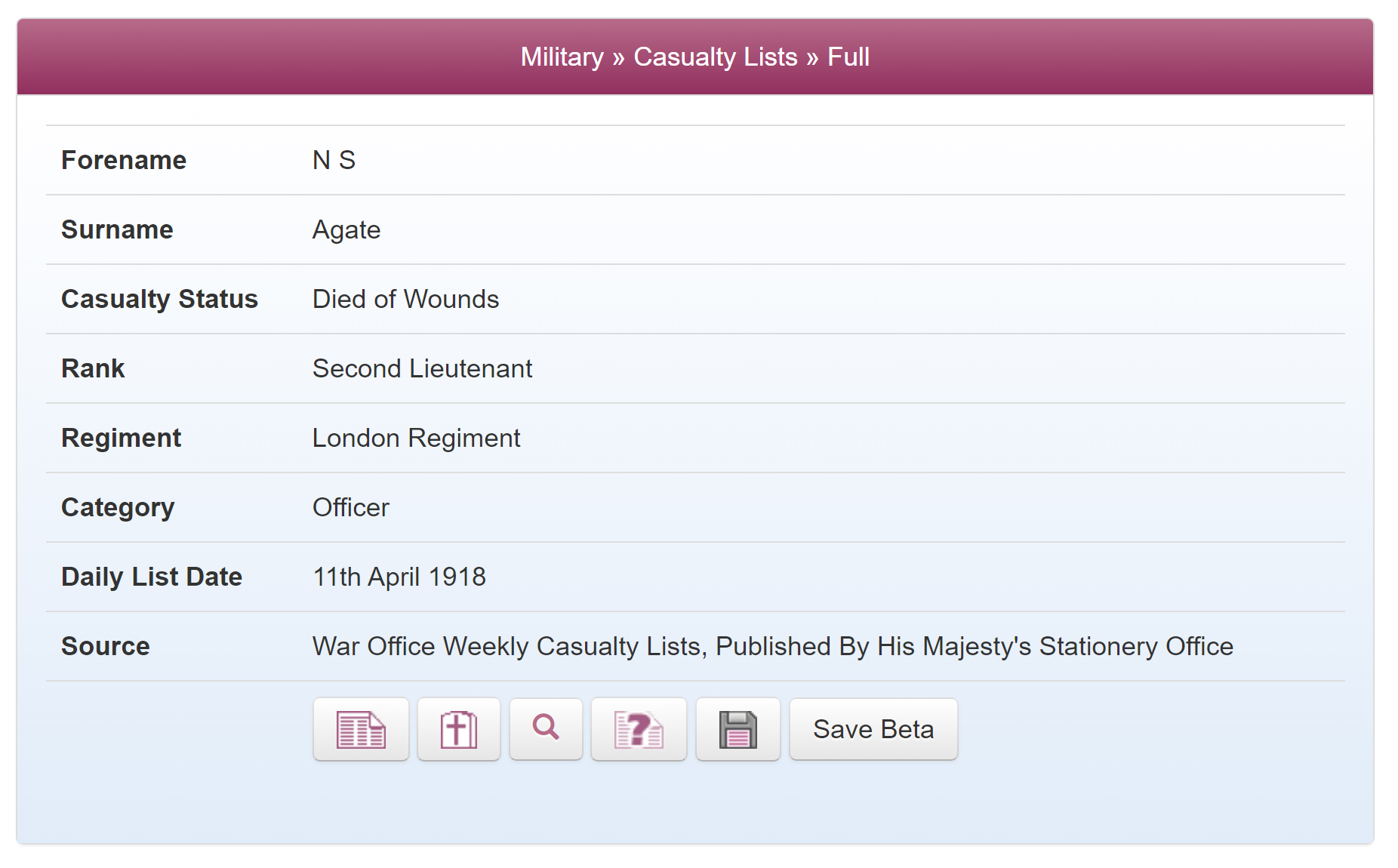
Sadly like so many others, he died of his wounds at a casualty clearing station on the 23rd March. With the many military records on TheGenealogist we can see firstly an index for his record of death in 1918.
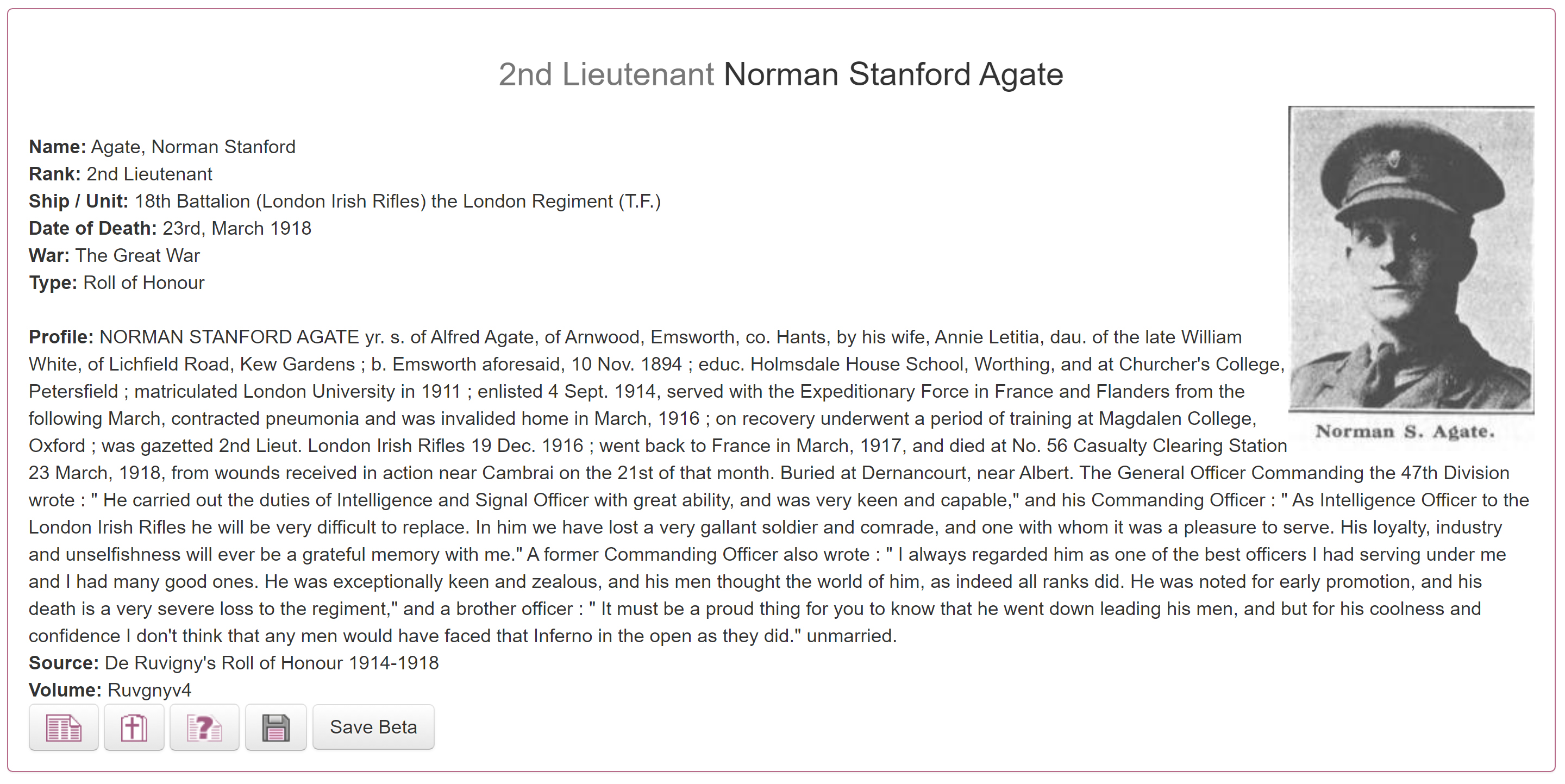
One further click takes us to more details on this brave young officer. The ‘Roll of Honour’ records give us more details on his death and the glowing recommendations and tributes from his fellow officers.
The Commanding Officer of the 47th Division describes him as “Difficult to replace” and carrying out his duties with “great ability” and another commander remarks “his men thought the world of him”.
TheGenealogist provides a further link to more information where his burial details can be found.
Uniquely, TheGenealogist also provides records on ‘War Memorial’ details so it’s possible to see where the memory of Norman and his comrades are commemorated. In this case, as a railwayman working at London Victoria Station, he is listed on the War Memorial at the station and we can view photographs of the memorial online together with full transcription details and further information links.
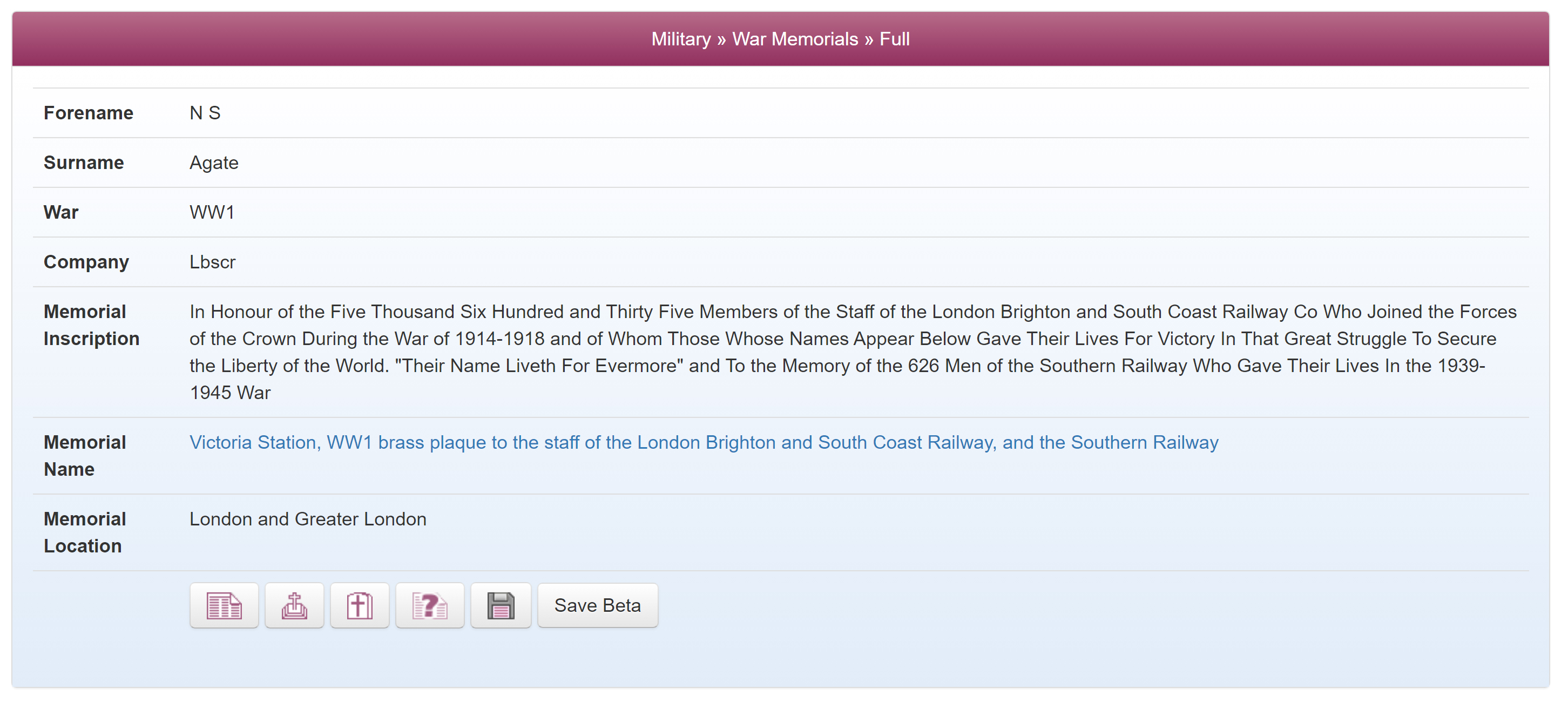
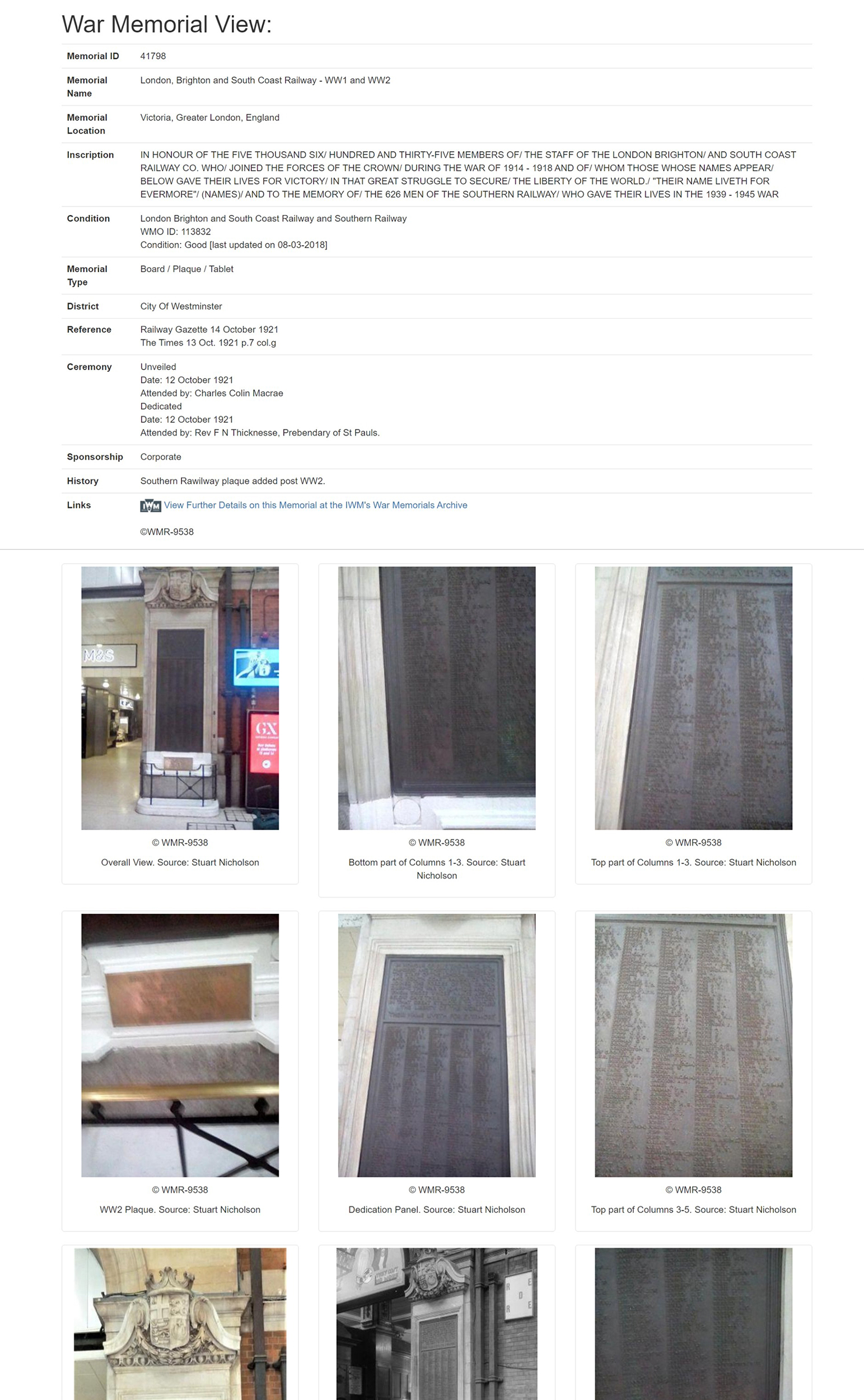
This young man of 24 was typical of the spirit and dedication to duty in a horrific war. A fellow officer summarised the sacrifice of Norman Agate: “He went down leading his men and but for his coolness and confidence, I don’t think any men would have faced that inferno in the open as they did.”
A major loss to the scientific community
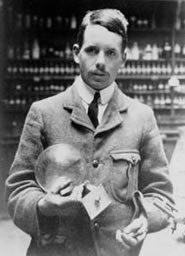
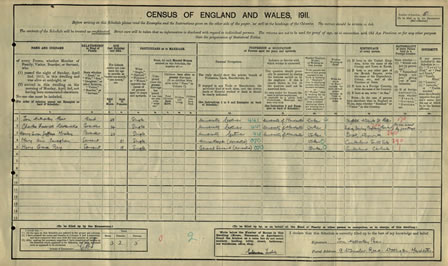
English scientist, Henry Gwyn Jeffreys Moseley was another young man to pay the ultimate price. Descended from a line of eminent scientists, on both his father and mother’s side, his father was naturalist, professor at the University of Oxford and Fellow of The Royal Society, Henry Nottidge Moseley.
Access Over a Billion Records
Try a four-month Diamond subscription and we’ll apply a lifetime discount making it just £44.95 (standard price £64.95). You’ll gain access to all of our exclusive record collections and unique search tools (Along with Censuses, BMDs, Wills and more), providing you with the best resources online to discover your family history story.
We’ll also give you a free 12-month subscription to Discover Your Ancestors online magazine (worth £24.99), so you can read more great Family History research articles like this!
Henry G.J. Moseley excelled in the area of physics and his studies of atomic numbers created ‘Moseley’s Law’. In the 1911 census Henry is a university lecturer in Manchester.
Due to further his research at Oxford University, when war broke out in Western Europe, Moseley left his work and volunteered for military service. He joined the Royal Engineers in the British Army at the outset of the war. He achieved promotion to Second Lieutenant in October 1914 as seen in the 1914 Army Lists.

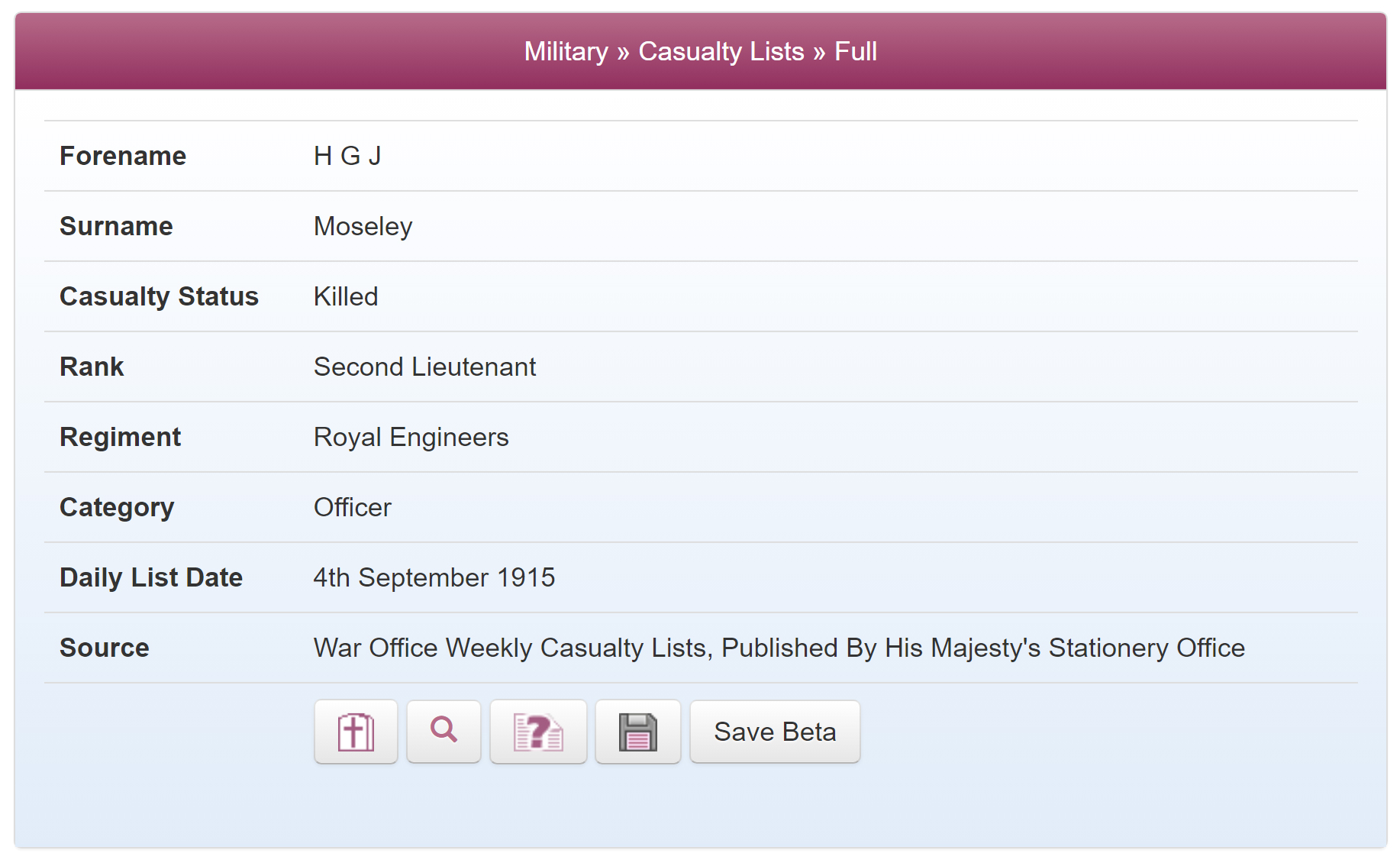

He was part of the large force of British Empire soldiers that attached the Turkish armies in the Gallipoli area in April 1915. He was sadly killed in action on 10 August 1915, shot in the head by a Turkish sniper whilst telephoning through a military order in the disastrous Gallipoli offensives. To the right we find his record on the ‘Casualty Lists’ on TheGenealogist.
On TheGenealogist we find him listed in the military death records indexes, with the Royal Engineers (shown on the right).
With the numerous military and war memorial records available, we find more records of this brilliant academic. TheGenealogist has comprehensive records of World War One deaths and Roll of Honour records.
He died aged 27, with many leading authorities in the scientific world mourning the loss of a leading scientist with great potential ahead of him. He was rumoured to have been in line to win the Nobel Peace Prize in 1916 for his scientific achievements.
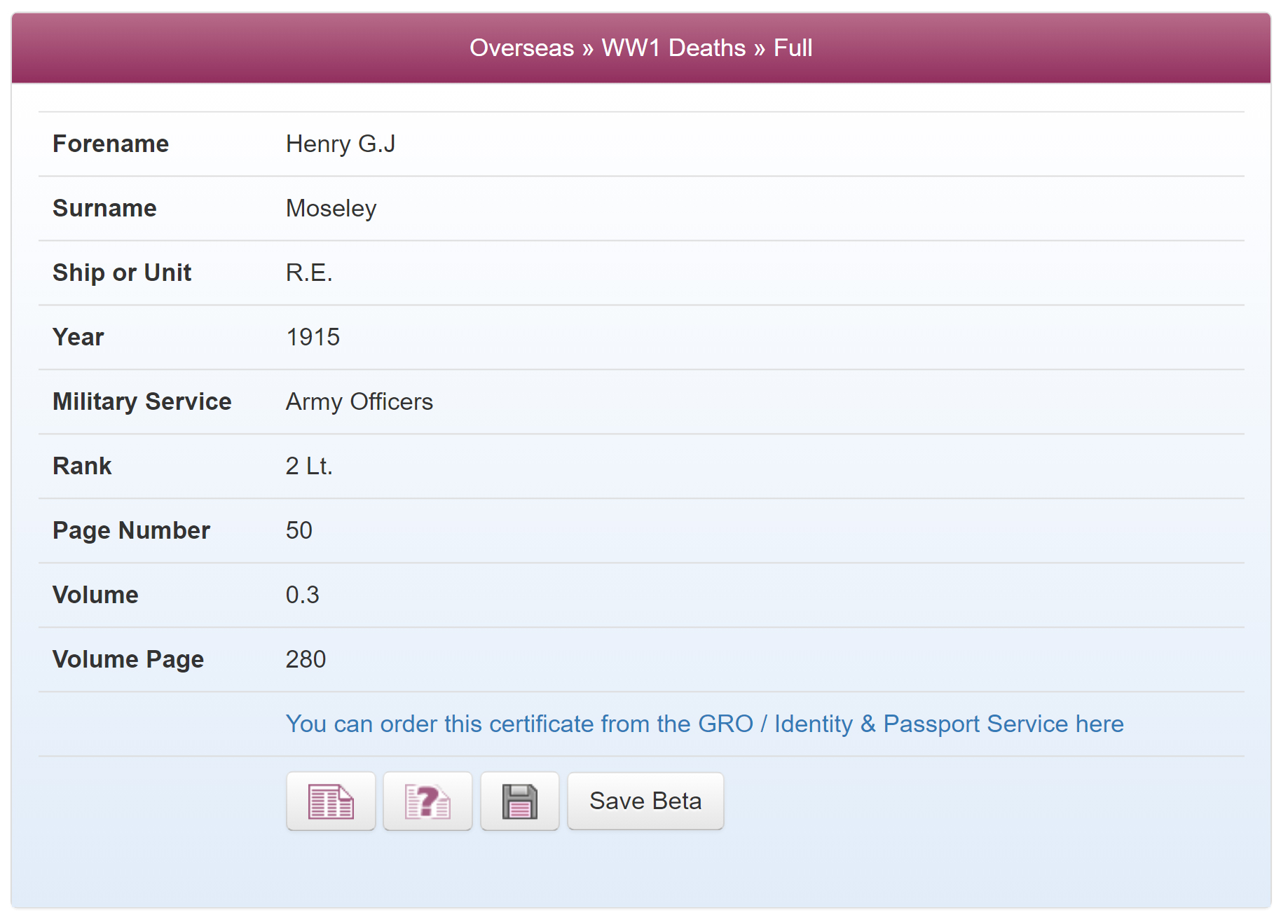
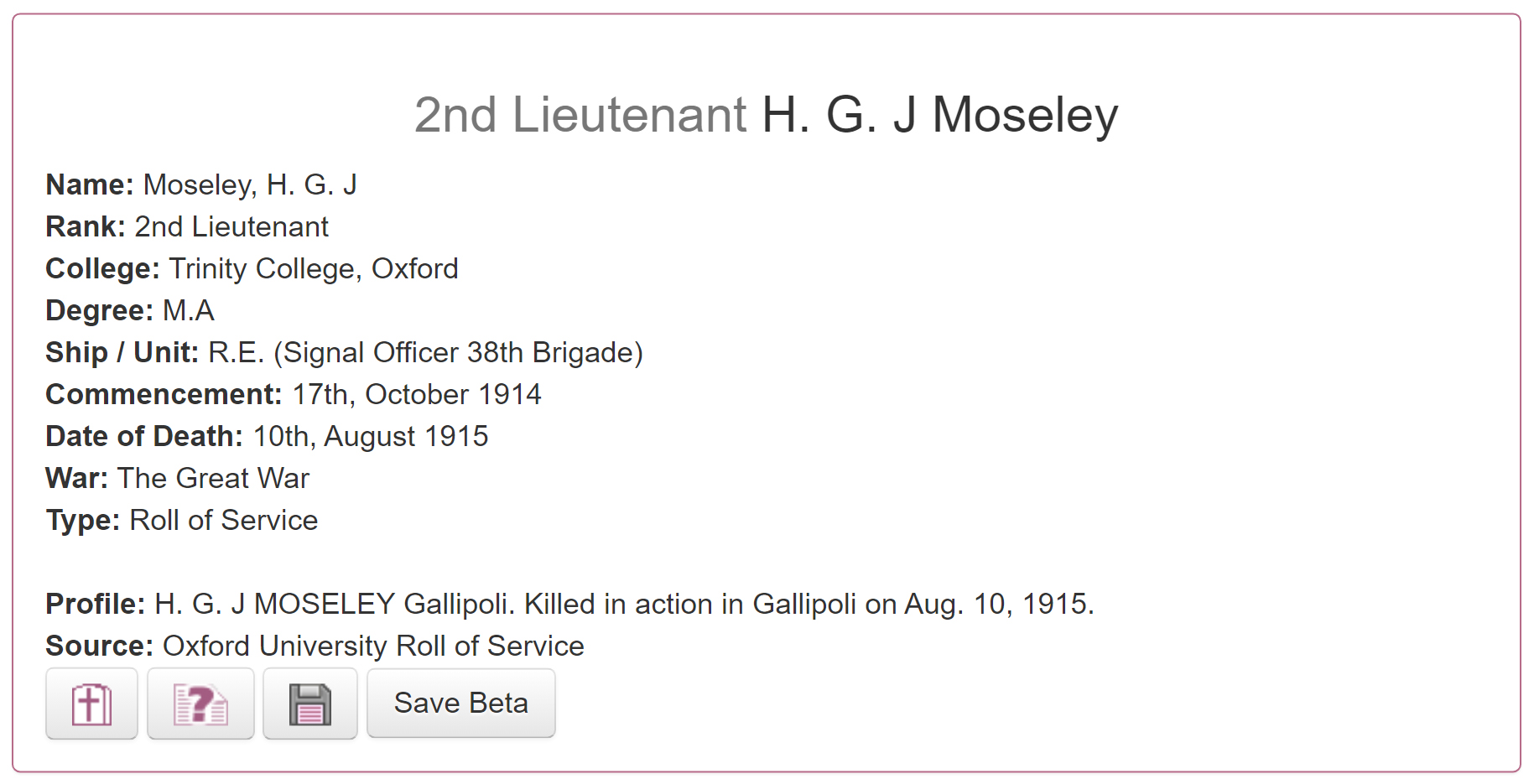
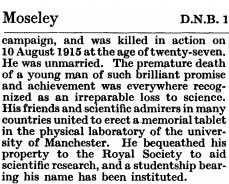
Famous scientist Isaac Asimov remarked later about Moseley: “In view of what he might still have accomplished his death might well have been the most costly single death of the War to mankind generally.” It was widely regarded he would have contributed an extensive amount to further atomic research.
As with the large numbers of academics and students who lost their lives in the major wars, Henry Moseley is also commemorated in the Oxford University Roll of Service, a copy is available on TheGenealogist.
The numerous military records on TheGenealogist also include links through to the memorial site in Gallipoli where Henry Moseley and his comrades are commemorated on an obelisk over 30 metres high that can be seen by ships passing through the Dardanelles.
Memorial plaques to Moseley were also put up at Manchester and Eton, and a Royal Society scholarship, established by his will, had as its second recipient the experimental physicist Patrick Blackett, who later became president of the Society and was a leading military scientist in World War Two.
The death of Henry Moseley was noted by the British government who then instituted a policy that prominent scientists would no longer be allowed to enlist for combat duty in the armed forces. In the biographical records on TheGenealogist , there are numerous glowing tributes to a remarkable talent, who like so many soldiers had their lives tragically cut short. We find an excerpt of a glowing tribute from the ‘Dictionary of National Biography’ records on TheGenealogist on the right.
‘He was to chemistry and physics what Wilfred Owen was to poetry: a phenomenal talent cut down in his prime.’ – The University of Oxford.






